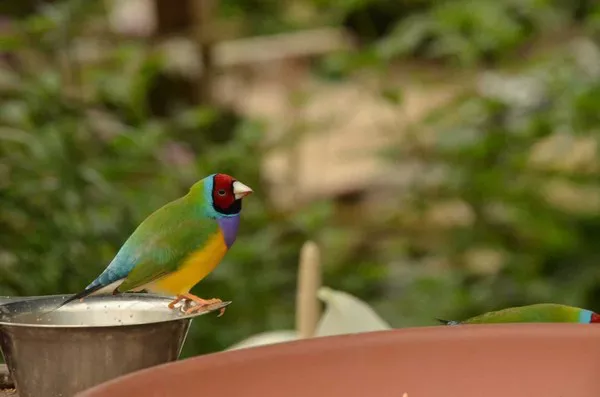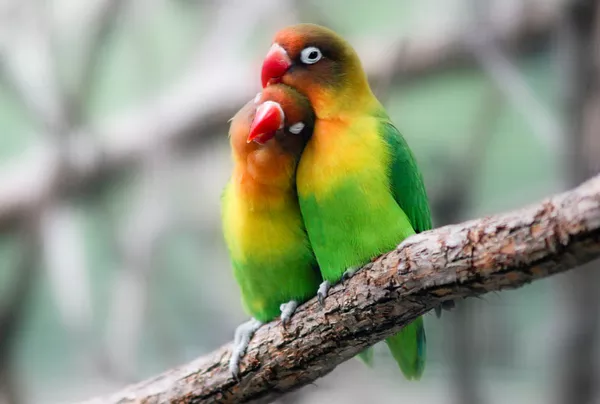Sun conures are one of the most popular and vibrant pet birds in the world, known for their striking golden and green plumage, playful personalities, and high intelligence. As a prospective bird owner, you may be wondering what the best age to buy a sun conure is, and how this can affect the bird’s behavior, socialization, and long-term health. This article will provide a comprehensive look at the factors to consider when deciding the right age to bring home a sun conure, helping you make an informed and responsible decision.
Understanding Sun Conures
Sun conures (scientifically known as Aratinga solstitialis) are small to medium-sized parrots native to northeastern South America. In the wild, they are found in the forests and savannas of countries like Brazil, Guyana, and Venezuela. These birds are beloved for their bright yellow, orange, and green feathers, and their ability to form strong, lasting bonds with their human caregivers.
Sun conures are incredibly intelligent, affectionate, and social animals, often mimicking speech and learning tricks. However, they can also be quite demanding in terms of attention and care, making it essential to carefully consider the timing of bringing one into your home. Age plays a significant role in a sun conure’s development, behavior, and training, so understanding the different life stages of a sun conure is crucial to making the best decision.
Factors to Consider When Deciding the Best Age for a Sun Conure
When determining the best age to buy a sun conure, there are several factors to consider, including the bird’s developmental stage, personality, training potential, and socialization needs. Let’s break down these factors.
1. Early Development Stages of Sun Conures
The first few weeks of a sun conure’s life are critical for their development. In the wild, young sun conures would stay with their parents for several months, learning vital survival skills and social behaviors. In a domestic setting, it’s important to buy a sun conure at the right stage to ensure a smooth transition into your home.
Hatching to 6 Weeks: During the first 2-6 weeks, a sun conure is still fully dependent on its parents or caregivers for food, warmth, and protection. At this stage, the bird has not yet developed its core socialization skills and is often not ready for independent living. If you acquire a sun conure during this period, it will likely need to be hand-fed and closely monitored for its health and development.
6 Weeks to 12 Weeks (Weaning Stage): By 6 weeks of age, sun conures start the process of weaning from their parents. This period is an ideal time for adopting a sun conure if you are looking for a bird that is still young enough to form strong bonds but has already started learning basic behaviors and eating independently. A sun conure in this age range can adapt quickly to new environments and will be more likely to bond with you as its primary caregiver.
During the weaning process, the bird may still exhibit some dependency on humans for food and care, but it is also beginning to explore its surroundings and develop its personality. This period is crucial for socialization, so it’s important to handle and interact with the bird regularly to foster trust and affection.
2. Young Adults (6 Months to 2 Years)
Sun conures between 6 months and 2 years of age are considered “young adults” and have usually reached full physical maturity. At this stage, they are often more independent than younger birds, but they are still highly trainable and can form strong, affectionate bonds with their human caretakers.
Pros of Buying a Sun Conure at This Age:
- Already Weaned: By this age, the bird will have already gone through the weaning process and will be eating independently.
- More Stable Temperament: Young adults are less likely to exhibit the hormonal changes that can make sun conures challenging to handle during puberty.
- More Predictable Behavior: Since the bird’s personality is more developed, you’ll have a better idea of what you’re getting in terms of temperament, energy levels, and preferences.
Cons of Buying a Sun Conure at This Age:
- Less Impressionable: While young adults can still bond with you, they may be a bit more set in their ways compared to younger, more impressionable chicks.
- Hormonal Behavior: Some sun conures may start showing hormonal tendencies around 1 year of age, especially during the breeding season. These behaviors can include territoriality, aggression, or excessive biting.
3. Adult Birds (2 Years and Older)
A sun conure that is 2 years or older is fully mature and may have established strong personality traits and preferences. While adult birds can still be affectionate and playful, their behavior may be more stable, and their training may be more challenging, depending on the bird’s past experiences.
Pros of Buying an Adult Sun Conure:
- Predictable Behavior: With an adult bird, what you see is usually what you get. There are fewer surprises when it comes to behavior, which can be a good thing if you’re looking for a bird with specific traits.
- Less Destructive: Adult sun conures are generally past the “baby bird” phase, meaning they are less likely to engage in destructive behaviors such as excessive chewing or screeching.
- Already Socialized: If the bird has been well-socialized by its previous owners, it can transition easily into your home with minimal adjustments.
Cons of Buying an Adult Sun Conure:
- Established Habits: An adult bird may have habits or behavioral issues that are harder to change, especially if it has not been properly trained or socialized.
- Less Bonding Potential: While adult birds can still form strong bonds, they may not bond as intensely or as quickly as a younger bird that has been hand-raised.
4. Consider the Source: Breeder vs. Rescue
The age of the sun conure is just one factor to consider when choosing a bird. Another important aspect is where you get your bird. You can either buy from a reputable breeder or adopt a sun conure from a rescue organization.
Buying from a Breeder: If you decide to buy from a breeder, you can usually choose a sun conure at a specific age and developmental stage. Reputable breeders often hand-raise their birds, providing socialization and care from a young age. This means you can get a bird that has already been exposed to positive human interactions and is more likely to be comfortable with you when it arrives at your home.
Adopting from a Rescue: Rescue birds can be a great option, but they come with their own set of challenges. Many rescue birds have been rehomed due to previous owners’ inability to care for them, so they may have some behavioral issues or past trauma. However, adopting a rescue sun conure can be a rewarding experience, as you are giving a bird a second chance at a loving home.
When adopting, it is essential to inquire about the bird’s history, temperament, and health to ensure that you are fully prepared for the potential challenges of bringing home a rescue bird.
Age and Training: A Crucial Link
Regardless of the age you choose to bring your sun conure home, training will play a pivotal role in shaping its behavior and relationship with you. Sun conures are incredibly intelligent birds and can learn a wide range of tricks and behaviors with consistent training. However, the earlier you start training, the better your chances of success.
- Young Birds: Sun conures younger than 6 months old are the most impressionable and will often bond with their new owner more quickly. They are also more likely to adapt to new experiences and can be trained to follow basic commands, use a perch, and engage in play.
- Young Adults (6 months to 2 years): Although they may be a bit more independent, young adult sun conures are still highly trainable and can learn new tricks and behaviors. They may require more patience during training than a younger bird, but their intelligence makes them highly capable learners.
- Adult Birds (2 years and older): While adult birds can still learn new things, their training may be more challenging, particularly if they have not been trained consistently in the past. It may take longer for adult birds to adjust to new behaviors or commands.
Conclusion
The best age to buy a sun conure largely depends on your goals and preferences as an owner. If you’re looking for a bird that is highly impressionable and can bond quickly, a younger bird (6 to 12 weeks old) may be the best choice. However, if you’re seeking a bird with a more predictable temperament and a bit more independence, a young adult (6 months to 2 years old) might be a better fit. For those interested in adopting a bird with a stable personality and fewer behavioral issues, an adult bird (2 years or older) may be ideal.
Ultimately, the most important factor is your commitment to providing the time, attention, and care that a sun conure needs to thrive, regardless of its age. Sun conures can live up to 30 years in captivity, so choosing the right age is just the beginning of a long and rewarding journey with your new feathered friend. Make sure to do thorough research, and consider adopting from reputable breeders or rescue organizations to ensure a positive experience for both you and your new sun conure.
Related Topics:
























